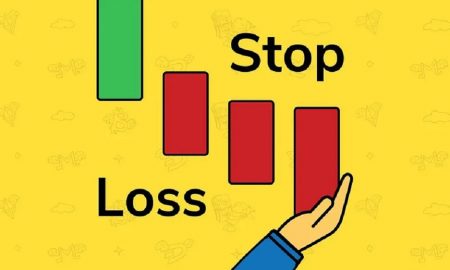
Nutritional Psychiatry: What Does It Mean And Can It Help You?

Nutritional psychiatry, what does that even mean? Well, actually, it’s one of the hottest words right now, but only a few know about it. If you don’t, please don’t feel left out. We’re here to tell you everything about this interesting concept, so do stick around till the end.
Deciphering Nutritional Psychiatry
Nutritional psychiatry is a huge fad currently, and that’s because it’s utterly simple to understand. The term is created with the two words “nutrition” and “psychiatry,” and what it basically points toward is the link between the food you consume and your mental health. So, it won’t be wrong to say that what you eat affects your mood, and this connection can be leveraged to use food supplements in the treatment of mental health conditions.
Do we see that light bulb flashing over your head now? Yeah, we know you’d catch it quick.

Amen Clinics | Nutritional Psychiatry works on the relationship between food and mental health
Now that your interest has heightened on the concept, why don’t we delve a little deeper? Let’s try to understand precisely which foods affect our mental health and how.
Read – Why nutritional psychiatry is the future of mental health treatment
Some foods suppress depression
It’s true, and you shouldn’t be shocked. According to research done in 2020, it has been shown that eating fish can help reduce the onset of depression, mostly in women. It proved that women who consume fish twice a week had a 25% lower risk of depression. The reason for this was the excellent content of nutrients like magnesium, vitamins, B6, B12, and D, zinc, and folate in fish. Apart from fish, such nutrients can also be found in beans, peas, avocado, dark chocolate, and other foods.

Unsplash | Foods rich in magnesium, vitamins, and folate are known to curb the onset of depression
Inflammatory foods increase the risk of depression
Over the years, inflammatory foods have been a concern for the medical world. But recent research has shown that these foods can also increase the risk of depression. The study suggested that foods that contain omega-3, an anti-inflammatory fat like virgin olive oil, avocado, and wild salmon, can reduce depression risk. This is true for all anti-inflammatory fats as they also inhibit inflammation in the blood.
Read – The 13 Most Anti-Inflammatory Foods You Can Eat

Unsplash | Anti-inflammatory food like olive oil help impact mental health positively
A change in diet will help you
We know it’s hard to drop your favorite snack. But you should know that when you adhere to dietary advice, you can enjoy better health on so many levels. A change in diet results in a difference in the way your body perceives nutrition. And now that you know which foods are good for your body and your mind, you should make the intelligent call and start bringing in subtle changes to your regular meals.
In short
We hope we could help you see the relationship between food and mental health. If you want a loved one to feel good and be at the top of their game, help them by recommending nutritional psychiatry. And if you want to start following it yourself, well, it’s good for you. But don’t forget to contact your dietician before it.
More inLifestyle
-
`
How Legally Binding Is a Lease?
How legally binding is a lease? Understanding how legally binding a lease is becomes crucial for landlords when considering rental agreements....
August 31, 2024 -
`
Top 5 Must-Try Dunkin’ Donuts Breakfast Foods
When you are on the go and need a quick yet satisfying breakfast, Dunkin’ Donuts is a favorite stop for many....
August 21, 2024 -
`
What Are the Top 6 Best Places to Raise Children in the U.S?
Choosing where to settle down and raise a family is one of the most significant decisions parents can make. Finding the...
August 17, 2024 -
`
Is Wearing a Hoodie a Sign of Depression?
Is wearing a hoodie a sign of depression? This question has crossed the minds of many concerned parents and friends. It...
August 9, 2024 -
`
Top 6 Things You Should Consider Buying When You Are in Japan
Traditional Japanese Tea Sets When thinking about what to buy in Japan, traditional Japanese tea sets top the list. These beautifully...
July 31, 2024 -
`
Which Caribbean Island Has the Best Food? Here Are the Top 10
Exploring which Caribbean island has the best food is a delightful journey through diverse culinary landscapes. Each Caribbean island offers unique...
July 25, 2024 -
`
Can You Claim Child Support on Taxes? Understanding the Rules
Navigating the financial landscape after a divorce or separation can be overwhelming, especially when it comes to understanding the tax implications...
July 19, 2024 -
`
Top 5 Shadow Work Exercises to Overcome Negative Emotions
Shadow work exercises are essential for anyone looking to overcome negative emotions and improve their mental health. By delving into the...
July 12, 2024 -
`
When Is the Best Time to Visit Yellowstone National Park?
Yellowstone National Park, a crown jewel of the American wilderness, beckons travelers with its geothermal wonders, captivating wildlife, and breathtaking landscapes....
July 2, 2024















You must be logged in to post a comment Login